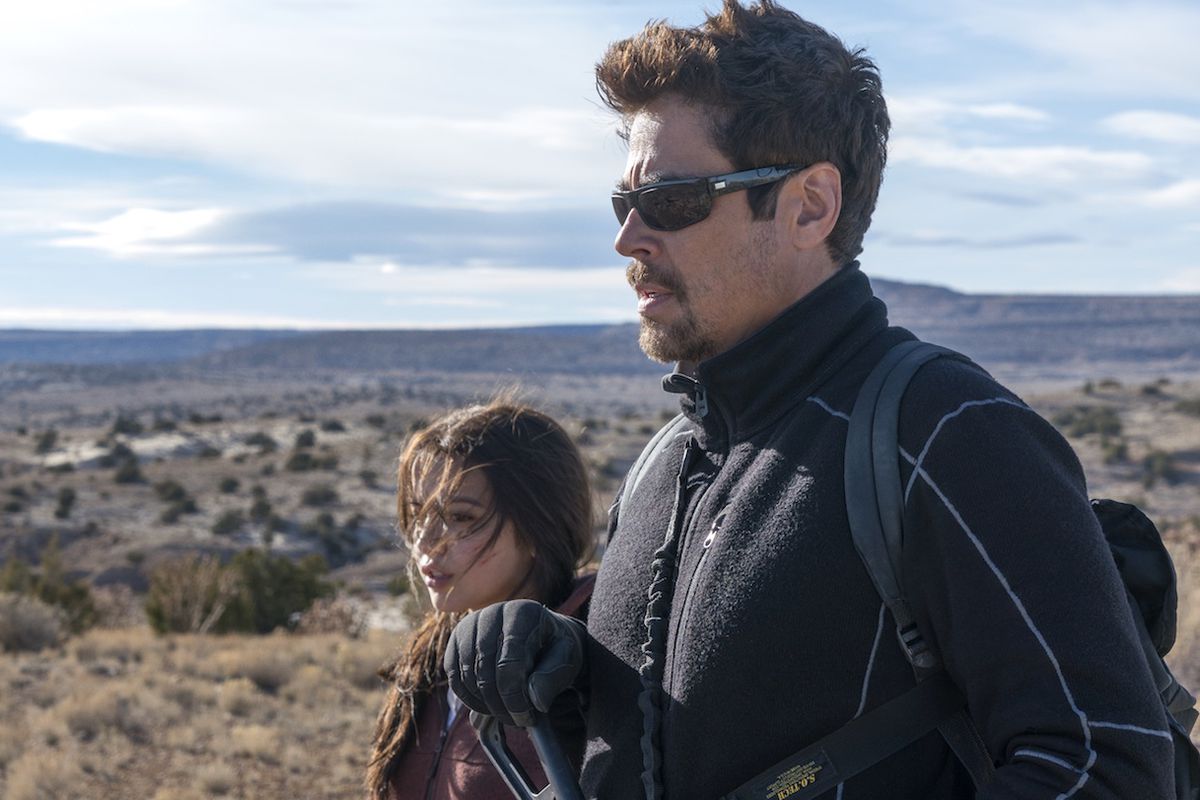No Medal of Honor for Sicario Sequel

“Sicario: Day of the Soldado” is nowhere near one of the worst films that I have seen all year but it is undoubtedly the most miscalculated thing that I have ever seen reach theaters in quite some time. While the original was masterfully crafted and somewhat insightful regarding the nature of the Mexican drug cartels and the politically charged armed conflicts surrounding them, it didn’t exactly do gangbusters at the box office, nor did it set itself up for some sort of coming franchise.
The gift of Benicio Del Toro’s award worthy performance as cartel bounty hunter Alejandro Gillick, driven to dismantle cartel’s via dirty dealings with the US military following the death of his family, has become a curse in disguise, as the good folks at Sony have seen fit to turn a feature length adaptation of the best parts of “Narcos” into a self-serious and substantially less interesting version of “John Wick.”
“Day of the Soldado” follows the further adventures of Gillick in his never-ending quest to tear down the drug cartels, picking up with a newly commissioned operation to turn Mexico’s organized crime against itself in an effort to tear itself apart following the apparent smuggling of Muslim extremist suicide bombers into the country via the US/Mexican border. The means to this end is the staged kidnapping and rescue of a cartel head’s teenage daughter, portrayed by Isabela Moner, whom Gillick is later forced to protect after the operation has gone wrong, getting him burned by the agencies that enabled him up to this point. Unfortunately, there’s no way to dress up that “Day of the Soldado” is just a forced concept of a sequel.
Although director Stefano Sollima lacks the elegant eye for composition, tone, and atmosphere that “Sicario” director Denis Villanueve has demonstrated across his entire career, he manages to craft a stylishly grim and brutal action thriller that does work as mindless popcorn entertainment, even if the level of craftsmanship going into it overshoots to no successful effect.
Solidly executed aspects of storytelling can’t change how toothless the story itself ultimately feels. The first film managed to use meditative moments amid the chaos of a dehumanizing conflict along with the juxtaposition of Del Toro’s jaded and mysterious demeanor with Emily Blunt’s well meaning, naive perception of South American war on drugs to reveal a messy and potentially unsolvable phenomenon perpetuated by human pessimism to a point of becoming self sustaining.
The messy nature of the war on drugs and the roles of the Mexican and American governments have become an unfortunate reality that should be acknowledged. I, however, would like to have a conversation with the movie executive that thought a major blockbuster that America needs to see right now is not only about Mexico sneaking criminals across our borders but also smuggling Muslim terrorists in with them.
2 out of 5
Graduating from Texas A&M University—Commerce with a bachelor's degree in News and Editorial Journalism, Jordan Wright has lived most of his adult life professionally critiquing films, from major blockbusters to indie dramas, and has no intentions of stopping.






